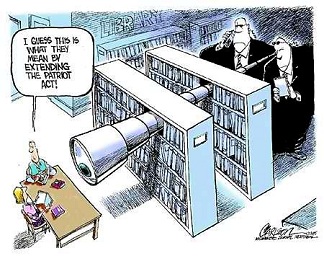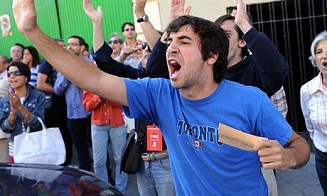Obama Genuflects to AIPAC

Edward Said once called AIPAC "the most powerful and feared lobby in Washington." For years, it's "drawn on a well-organized, well-connected, highly visible, successful, and wealthy Jewish population," subverting potential opposition.
As a result, fear and respect "for AIPAC (exists) all over the country, but especially in Washington, where in a matter of hours, almost the entire Senate can be marshaled into signing a letter to the president on Israel's behalf. Who is going to oppose AIPAC and continue to have a career in Congress, or" to represent the Palestinian cause "when nothing concrete can be offered by that cause to anyone who stands up to AIPAC?"
Deferentially, each year, US politicians, including presidents, flock to its annual conference, paying homage to Israel and its influence.
Calling itself "America's Pro-Israel Lobby," it's represented Israeli interests since founded in 1953, then incorporated in 1963 as a division of the American Zionist Council (AZC), its precursor.
Exempted from registering as a foreign agent, it's had virtual fifth column veto power over war and peace, trade and investment, multi-billion dollar arms sales, and all Middle East policies affecting Israel under Democrat and Republican administrations alike.
In March 2001, discussing the power of American Zionist organizations, Edward Said said:
"I find it absolutely astonishing, given that Palestinian policy has been essentially to throw our fate as a people in the lap of the United States without any strategic awareness of how US policy is in effect dominated, if not completely controlled, by a small minority of people whose views about the Middle East are in some way more extreme than even those of the Israeli Likud."
In fact, Zionist discourse in America reflects power, "and Arabs....are the objects of power - despised objects at that....To submit supinely to a Zionist-controlled (US) Middle East policy....will neither bring stability (for Israelis or Palestinians) nor equality and justice in the US."
As a result, today's status is what Said called "untrammelled immorality," a shocking disregard for the most basic sense of fairness - unrecognized, undiscussed and spurned in political and major media discourse. Instead, they focus solely on the interests of a rogue Israeli state - occupying, persecuting, and immiserating millions of Palestinians whose only offense is not being Jewish.




























